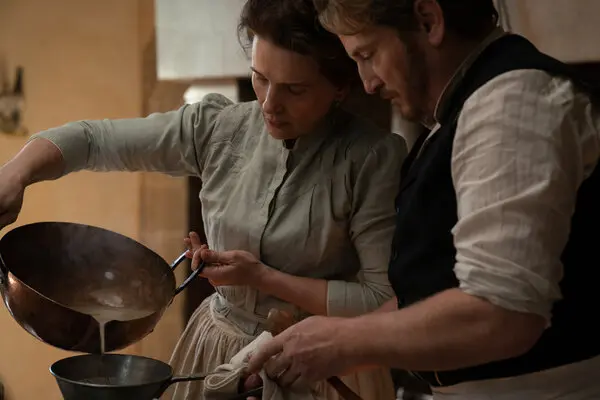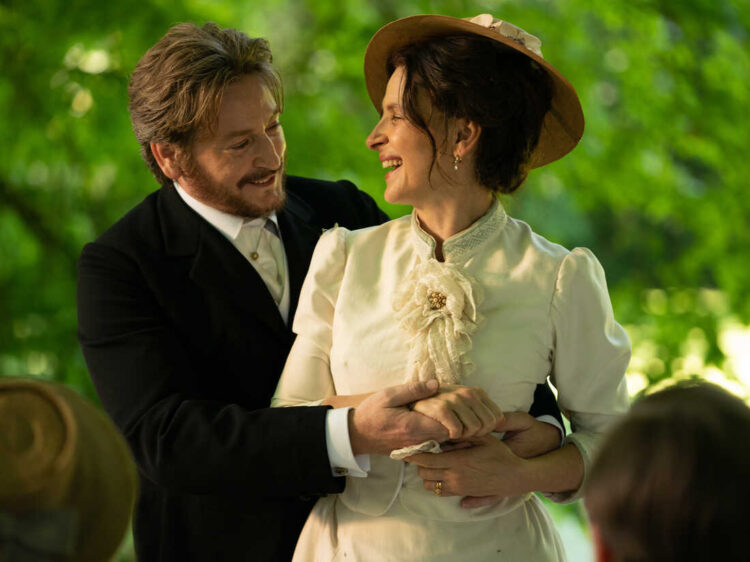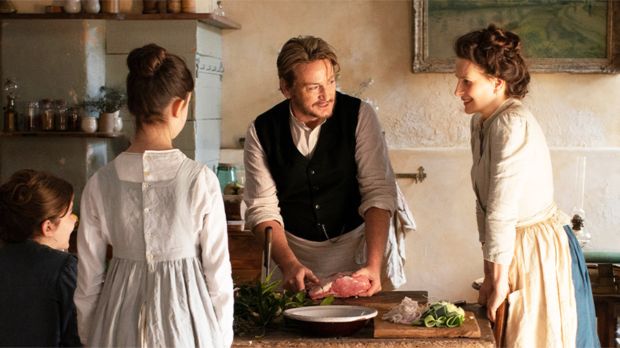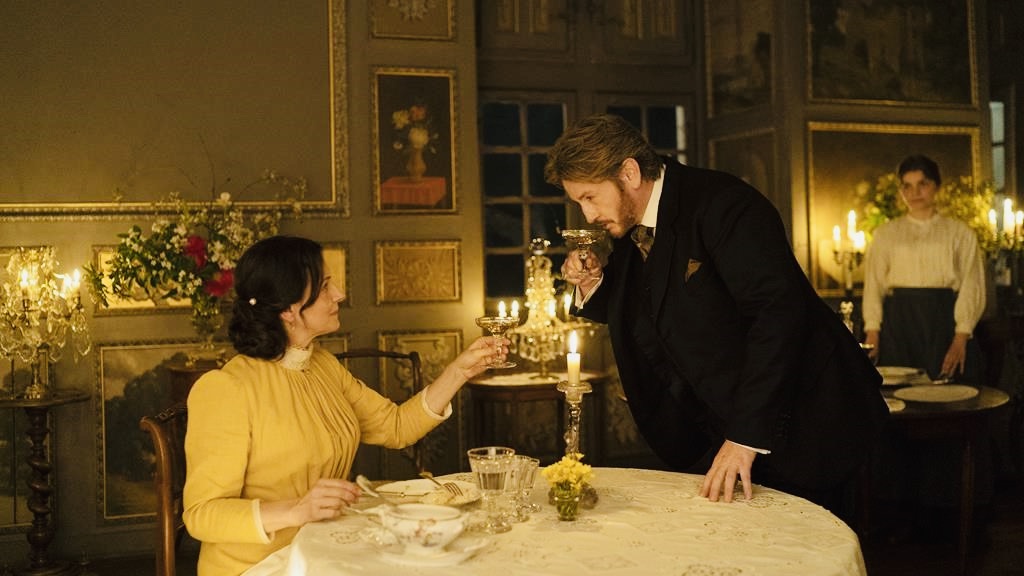Viewers are treated to a marvellous culinary adventure in Tran Anh Hung’s The Taste of Things, an ode to haute cuisine.
Scheduled to open in Toronto and Vancouver on February 16, this French film, with English subtitles, stars Juliette Binoche as an innovative cook and Benoit Magimel as a master chef. It is set in a chateau in France in the mid-1880s.
Eugenie (Binoche) and Dodin (Magimel), having worked together harmoniously for more than 20 years, are not just colleagues but lovers.
The first few scenes set the tone of a film, which is dedicated to the proposition that good food and happiness are inextricably intertwined, a point that was memorably conveyed by previous movies such as Babette’s Feast and Julie & Julia.
On a gray day, Eugenie picks and tastes root vegetables in a garden adjacent to the kitchen where she works up her magic. She uses the fresh and aromatic bounty of the land to produce meals fit for a king, if not a commoner.
The camera pans lovingly on the meat and fish dishes she is creating with expert care and finesse. She and her assistant, Violette (Galatea Bellugi), fry vegetables, strain sauces, whisk eggs, and pour water into pots and pans as they go about their business methodically. Approaching the finish line, Eugenie inserts a veal loin and a freshly-caught fish into the oven to be baked to perfection. She is clearly in her element and enjoys the tasks she performs so effortlessly.
The elaborate meal she is whipping up will be served to Dodin’s four friends, all of whom appear to be gourmets. These bourgeois men eat heartily, savoring each and every spoonful and forkful of the epicurean feast. The piece de resistance, a baked Alaska dessert crafted by Eugenie, is the icing on the cake, so to speak.
Rising from the table after this wonderful repast, the diners pay their compliments to Eugenie. “It was truly exquisite,” says one man, planting a kiss on her cheek. “You’re an artist,” exults another diner, thrilled by the experience.

Inspired by the great French chefs Marie-Antoine Careme and Auguste Escoffier, Eugenie refined her skills under the direction of Dodin. But as the film suggests, she was an accomplished cook before she met him. They not only admire each other, but sometimes share the same bed as lovers.

Dodin is smitten by Eugenie, whom Binoche portrays with panache. He proposes marriage, but she values her independence and seems content with the romantic status quo. “Aren’t we happy like this?” she asks.
A subplot emerges when Violette introduces them to her niece, Pauline (Bonnie Chagneau-Ravoire), a precocious girl and farmer’s daughter who appreciates fine food. Dodin recognizes Pauline’s qualities and thinks she has the makings of a chef.

When Eugenie’s health falters, she asks Dodin for one of his famous broths. He has a far better idea. For once, he will cook a meal with all the trimmings for her. Dodin, played soulfully by Magimel, artfully assembles one succulent dish after another. The meal is crowned by a fancy dessert strewn with petals and a special surprise.
As she eats, a look of amazement and joy comes over her. Dodin serves the dishes silently, but after placing a rare red wine on the table, he poses a question: “May I watch you eat?”
Immensely pleased by his efforts, she calls him “the Napoleon of gastronomy.”
He, in turn, compliments Eugenie.
From start to finish, The Taste of Things is beautifully conceived and implemented, always focused on the sensual and aural pleasures of food, the staff of life.
It takes its place as one of the finest feature films ever made about the joys of cooking and eating.
